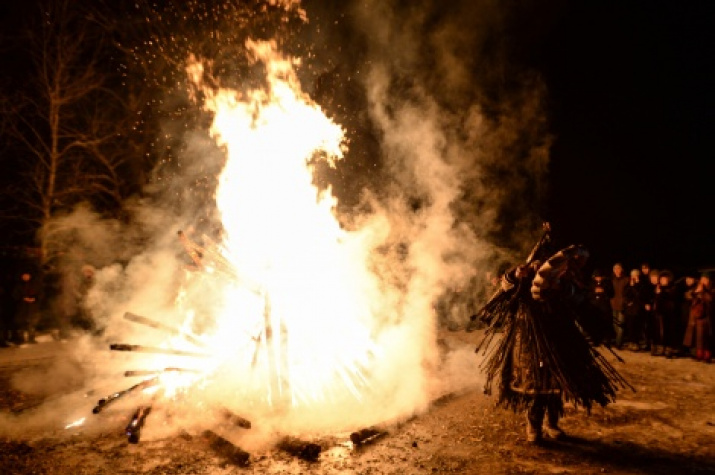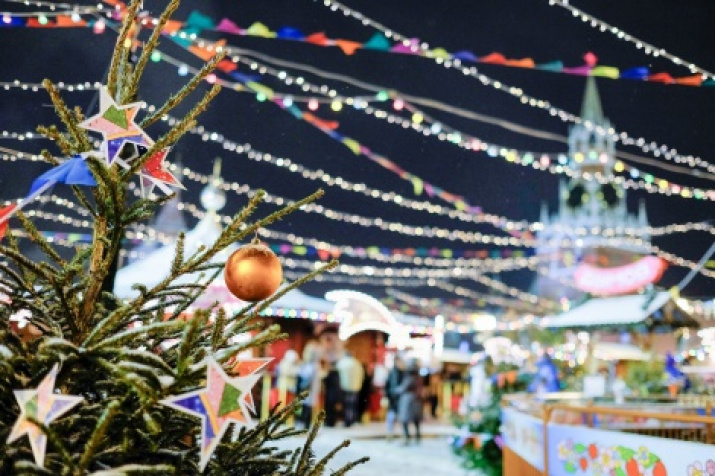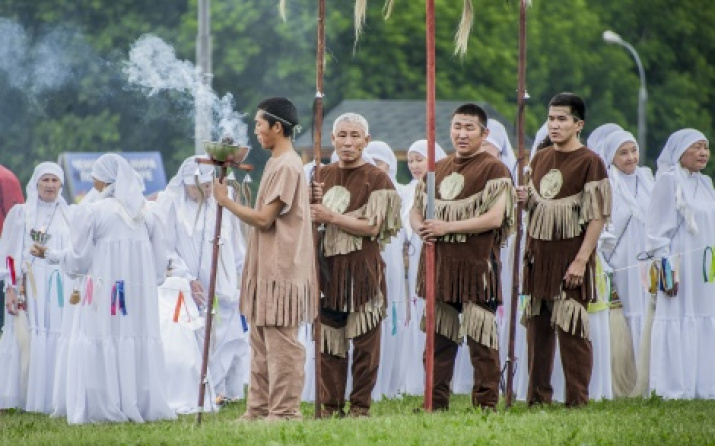The New Year in Russia can be celebrated not only in winter, but also in spring, in summer and even in autumn - depending on which region of our country you are being in. For the residents of Chukotka, the holiday came on the night of 21 to 22 December. This is the time of the winter solstice, the longest night of the year, after which the light day begins to increase gradually. The first turn of nature to the warmth and light the indigenous people of the north consider to be the beginning of the New Year. The holiday is called Pagytti, in honor of it it is customary to kindle a fire, to sing and dance in bright, beautiful clothes around the fire. This day, everyone is wishing good to each other and is trying to stay in a good mood - it is believed that that way the New Year would bring the fortune.
Most Russians are used to celebrate the New Year on December 31. According to VTSIOM, 78% of our compatriots do it at home - in the family circle near the dressed tree. We have 11 time zones in the country, so on the night of December 31 to January 1, Russians celebrate the holiday 11 times - the first in Kamchatka and Chukotka, the last - in the Kaliningrad region.
The next New Year will come in the first in the 2018th new moon. At this time, it is being met by the Buddhist peoples of Russia - Tuvinians, Kalmyks, Buryats. The holiday is called Tsagan Sar, and in 2018 it will be celebrated on February 16. Tsagan Sar is being a symbol of hope and future renewal of nature. On this day it is customary to go to visit and give symbolic gifts - donuts "bortsoki" of various forms. This meal symbolizes well-being, for example, «bortsoki» in the form of animals - an increase in the number of livestock, in the form of an occasion (a belt for driving a horse) - luck, etc.
With the coming of spring it's time to prepare for Novruz (another spelling - Navruz) - the traditional New Year's holiday of the peoples of the Caucasus. On this day, fire cleansing fires are burning. According to popular beliefs, jumping over fire, you can be healed of illnesses or fulfill a cherished desire.
Novruz coincides with the vernal equinox, when the duration of the day and night becomes the same. And the longest day - the summer solstice – is being the first in the new year for the Evenks. The celebration is called Habdenek, which in translation means "fun". On a festive day, the elders of the families kindle a sacred fire, perform a purification ceremony with the smoke of a juniper, and conduct roundelays. Evenks make New Year wishes, tying a piece of cloth to a tree branch: according to the beliefs of this people, on the day of the summer solstice it is much easier to convey their requests and desires to the higher powers.
In Yakutia, the New Year is also being celebrated in June. Ysyakh (in translation it means «abundance») is traditionally accompanied by prayers, folk dances and games. Yakuts lead a round dance, symbolizing the life cycle. It is believed that everyone who enters it, is filled with energy for a year ahead. It is customary to drink koumiss for this holiday in Yakutia.
Together with the Pomors, the New Year can be celebrated on September 14. The main tradition of the old year's wires on the shores of the White Sea is the launching of a lighted floating lighthouse. For this purpose, the pilots, surrounded by torchbearers, lit a navigation sign for the bell ringing. Everyone who saw the light of the lighthouse on the water knew that the Pomorian New Year had come. According to the tradition of the Pomorians on September 14, it is not necessary to close the doors of houses, so that happiness could find the way to the house. And an old broom was being put on his threshold: it was believed that all who stepped through it, could freed from the hardships of the old year.
But in whatever region of Russia you are meeting the New Year, everywhere people wish each other happiness, goodness and joy!



